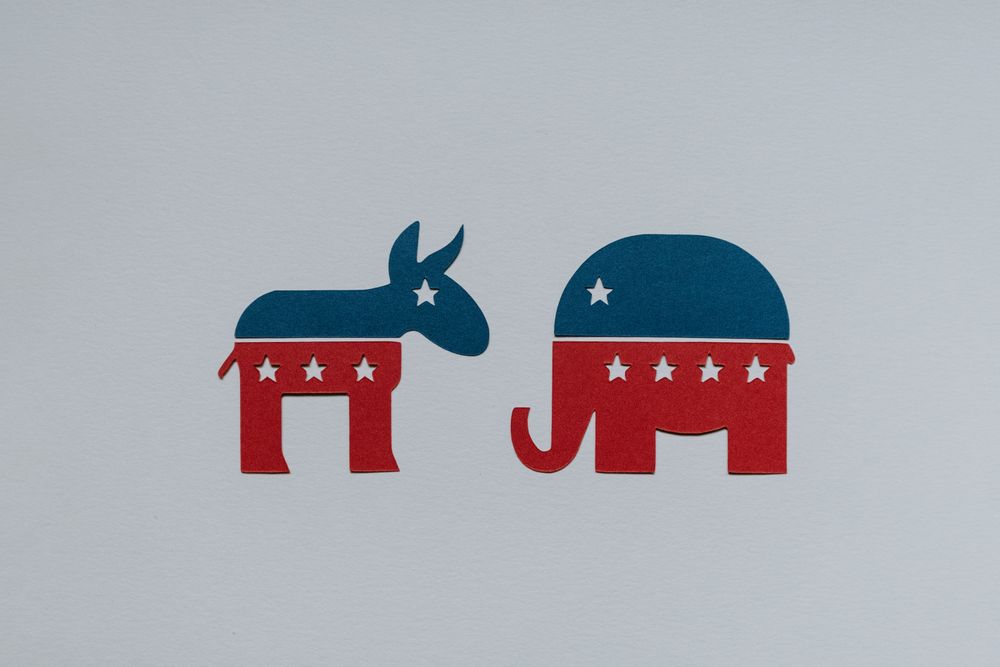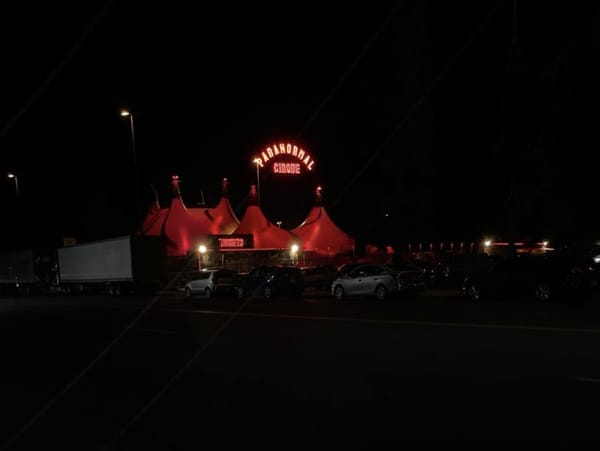Yakima Latino Voters Targeted by Leftist Advocacy Groups
This is One Crackima's synopsis and response to an article on Latino voter turnout across the county. The article was published by the Yakima Herald-Republic on August 31, 2023, and titled as "Spanish surname voter turnout varies in Yakima Valley communities." It was written by Jasper Kenzo Sundeen.
What was the Voter Turnout Article About?
The Yakima Herald-Republic reported that the recent August primary election had a voter turnout of 19.6%. Our county had the lowest turnout in Washington state (the statewide average was 30%).
How Do We Assess Latino Voter Turnout?
Yakima's turnout for voters with Spanish surnames was at 10%. Measuring votes by surname is one way the county assesses Latino turnout (i.e. comparing the number of votes from Spanish names like "Gonzalez" or "Lopez" as opposed to white names like "Smith" or "Foster").
Unfortunately, it's common for odd-year primaries to have lower turnout. It's not a Presidential election, or even a governor's election. However, Yakima County is seeing higher turnout in the Lower Valley. Sunnyside, Wapato, and Granger had almost 13% turnout among those with Spanish surnames. West of Union Gap only had 7.4% turnout with Spanish surnames.

Which Advocacy Groups are Working on the Latino Vote?
The Herald mentioned several voter advocacy groups that are working to increase Latino turnout. One activist is Audel Ramirez with the Lower Valley Latinx Coalition. The Coalition is currently involved with various Latino candidates running for city and school board positions in Sunnyside. Audel has previously worked as an organizer for OneAmerica, a "nonpartisan voter outreach nonprofit."
A second activist working in the Lower Valley is Mark Figueroa, the state program coordinator for another "nonpartisan nonprofit" called Poder Latinx. According to Figueroa, other Latino voter groups – like Ella and Raíces – have been organizing in the Sunnyside area for years.
How are Advocacy Groups Addressing Low Voter Turnout?
The Yakima Herald-Republic included three perspectives on how advocacy groups and political parties are addressing low Latino voter turnout:
- Audel Ramirez (Lower Valley Latinx Coalition & OneAmerica) | The Coalition is focusing on connecting Lower Valley cities. They hope to create a semblance of rural organization that will spark engagement on local issues. They've seen increased engagement in Granger, Grandview and Zillah.
- Mark Figueroa (Poder Latinx) | Increasing voter turnout is a long-term project that involves community organizing. Addressing and providing what the community needs (food, child care, etc.) is their foundational basis.
- Matt Brown (Yakima City Council Dist. 6, Republican Party Chair) | The Republican Party seeks to engage voters on issues that are important to them by using diverse outreach strategies. They seek to establish community connections and trust. This is allows voters to seek solutions for specific local concerns.

The OC Opinion on Latino Voter Turnout
The Herald's article is seemingly innocuous, but a little research points out some glaring discrepancies and an astounding amount of false nonpartisanship.
1. Using Spanish Surnames to Assess Latino Vote is Inaccurate
Put it this way, Yakima is 50% or more Latino. It seems racially insensitive – and maybe a hint sexist – to be measuring the Latino vote by Spanish surname.
As an example, if "Julio Gonzalez" marries "Kate Foster" and she changes her name – in typical fashion – all of a sudden, there's a non-Latino vote that now counts as a Spanish surname. "Kate Gonzalez" is still white.
The opposite is also true. If "John Smith" marries "Maria Lopez" and she changes her name, now there's a Latino vote that's no longer identifiable using the Spanish surname system. "Maria Smith" is still Latina.
According to the Pew Research Center, around 27% of Hispanic marriages are to a spouse of a different race. That number can vary depending on whether the individual was born in the U.S. – Latinos who immigrated tend to intermarry about 15% of the time, while those born in the U.S. tend to intermarry up to 39% of the time.
2. Are Latinos Voting for Latinos?
For all the article talked about engaging Latino voters, no one addressed a very basic question:
Are Latinos actually voting for the Latino candidates?
As near as we can tell, the Yakima County Elections department doesn't break the numbers down this way. Latino voter turnout may be increasing, but we don't have an answer to whether Latinos are actually voting for the candidates these "nonpartisan advocacy groups" put.
There are no official, hard numbers daring to answer this question.
3. Who are these "Nonpartisan" Advocacy Groups?
A few of these groups were mentioned, and we believe their "nonpartisan" views are blatant lies. Poder Latinx, Ella, Raíces, and OneAmerica all exhibit far-left tendencies. Just look at their Facebook posts.
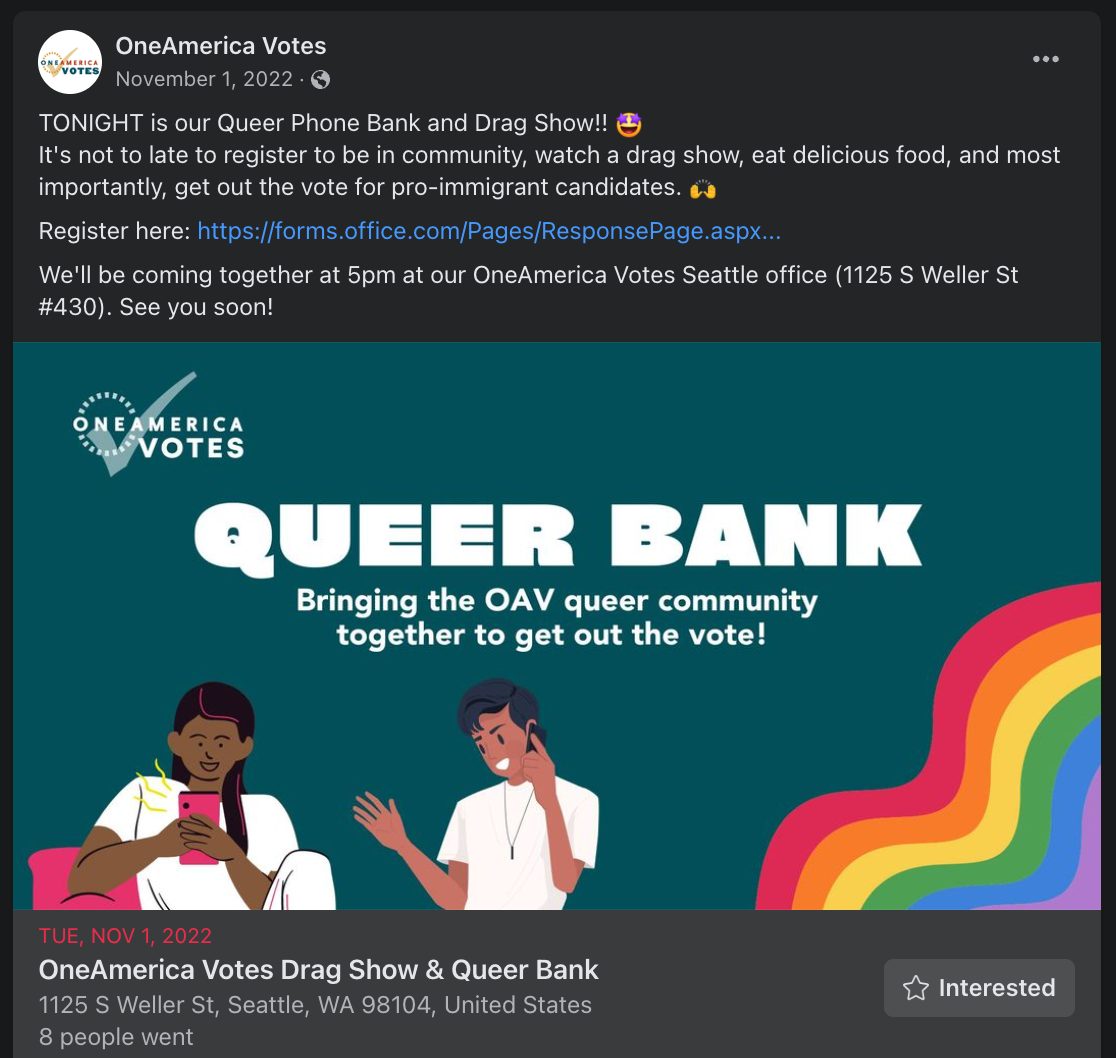
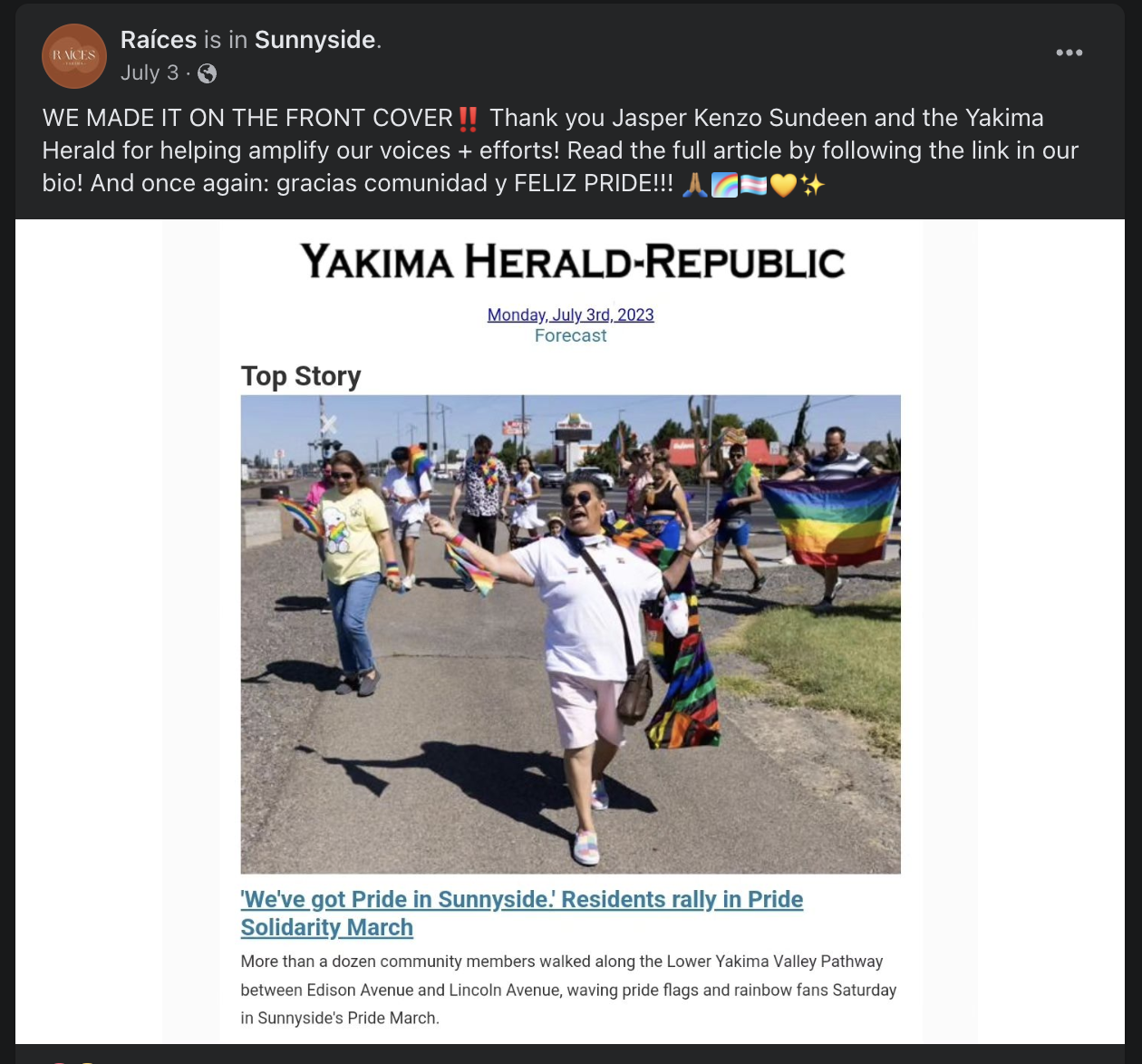
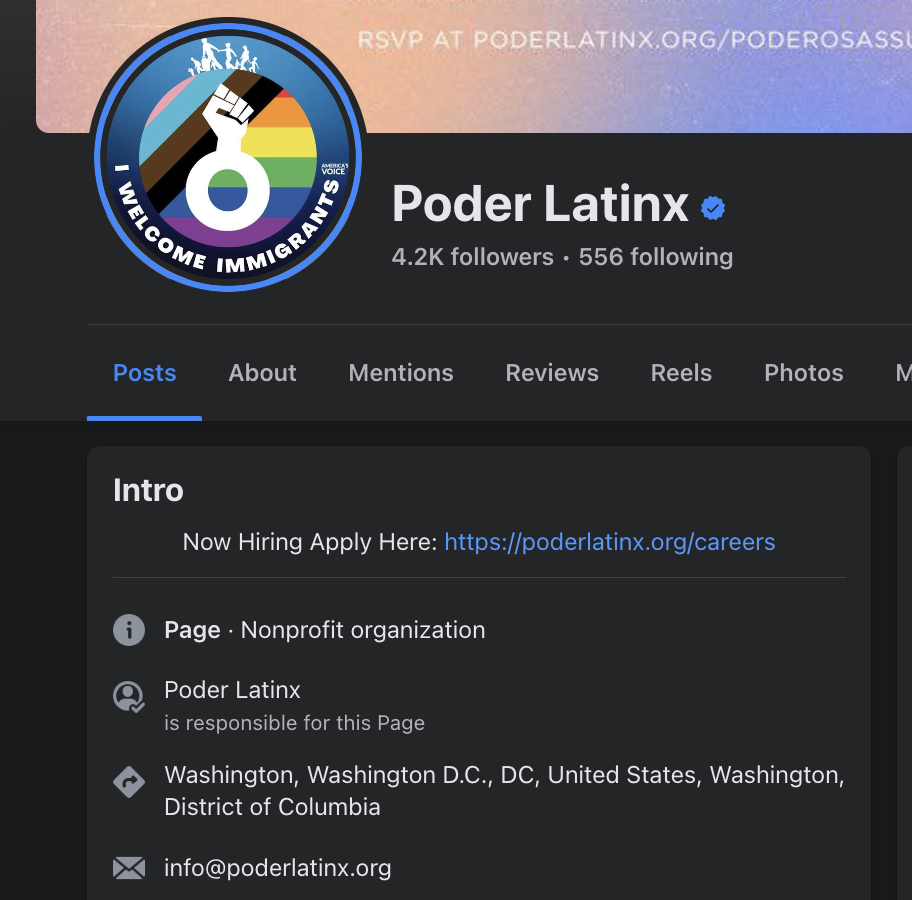
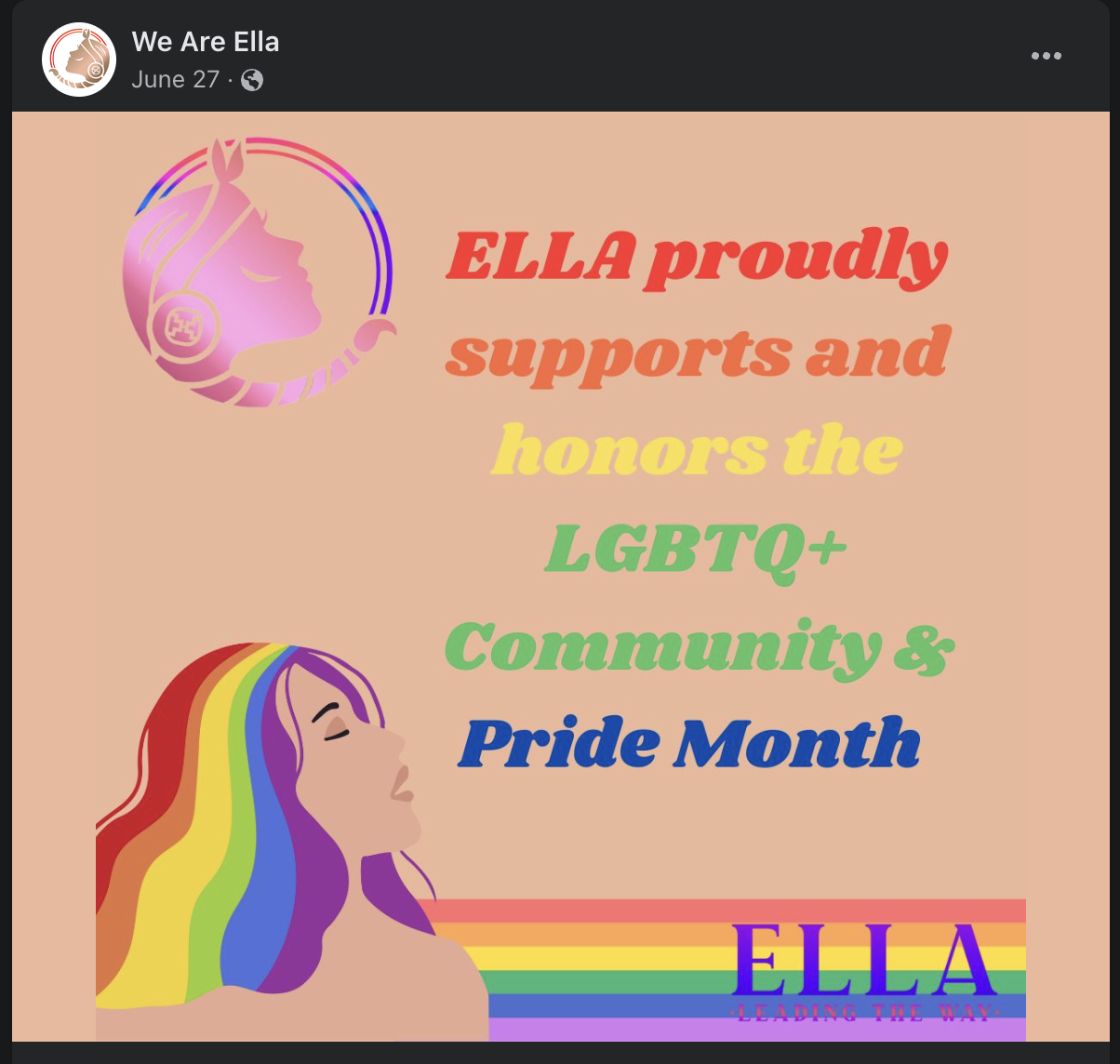
Facebook screenshots showing the far-left agendas of alleged "nonpartisan" groups attempting to increase Latino voter turnout in Yakima County (September 2023).
We're not sure how many agendas Poder Latinx is trying to hit, but their effort is laughably extreme. The more you look, the more there are – it's like a Rorschach test.
But what's also interesting is how many of these organizations are connected. For example, an event featuring the Latino candidates in Sunnyside was put on by the Lower Yakima Valley Latinx Coalition. In each of the corners of the post is an organization's logo: Ella, Raíces, Poder Latinx, and Progreso – presumably members of the Coalition.
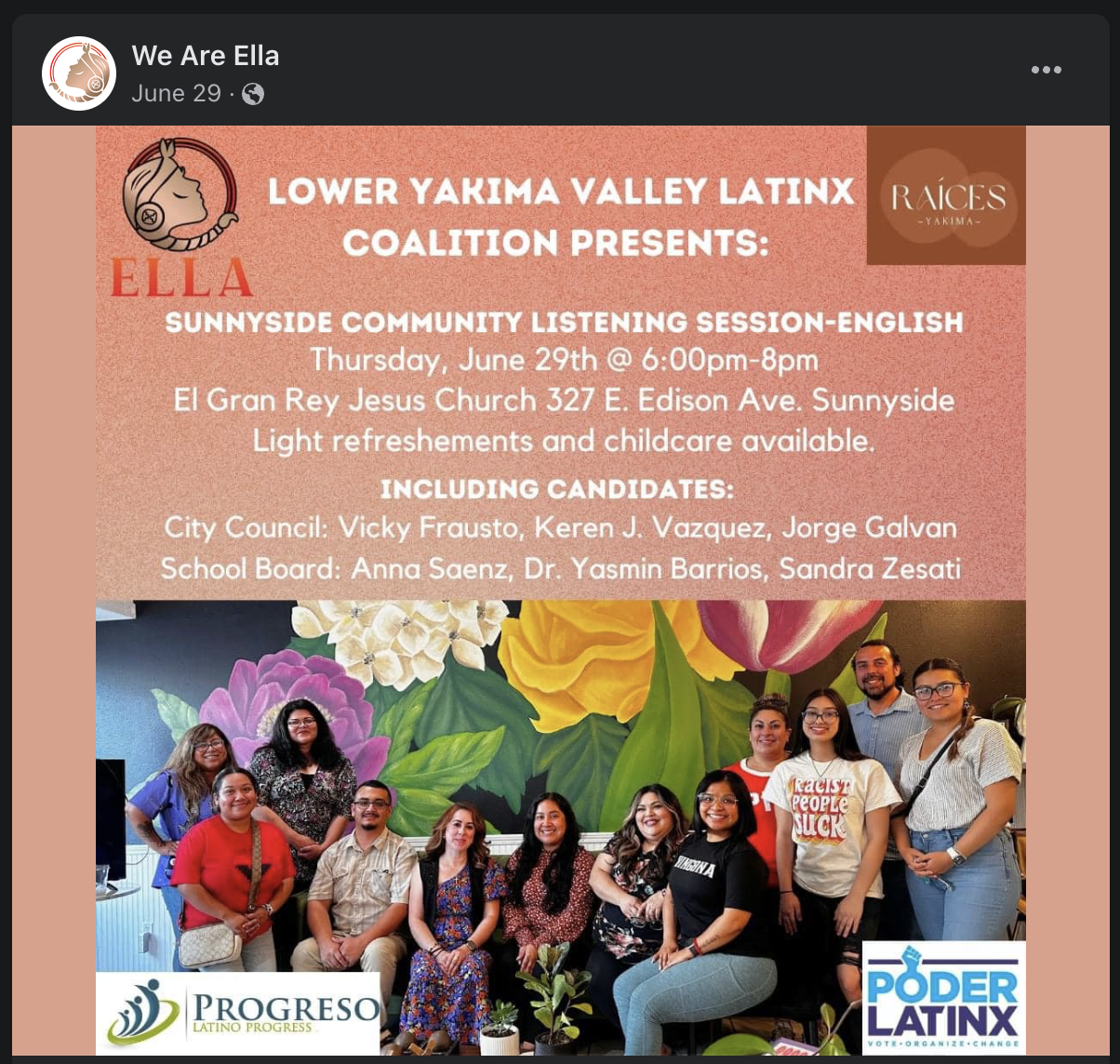
Progreso wasn't mentioned in the Yakima Herald's article, but it's yet another "nonpartisan" organization that works with Poder Latinx, Ella, and sometimes the Latino Community Fund.
Progreso is also strongly connected with Yakima's LGBTQ agenda via a woman named Cristina Ortega. Ortega happens to be on both teams for Progreso and the Latino Community Fund; she's also one of the past presidents and founding members of Yakima Pride.
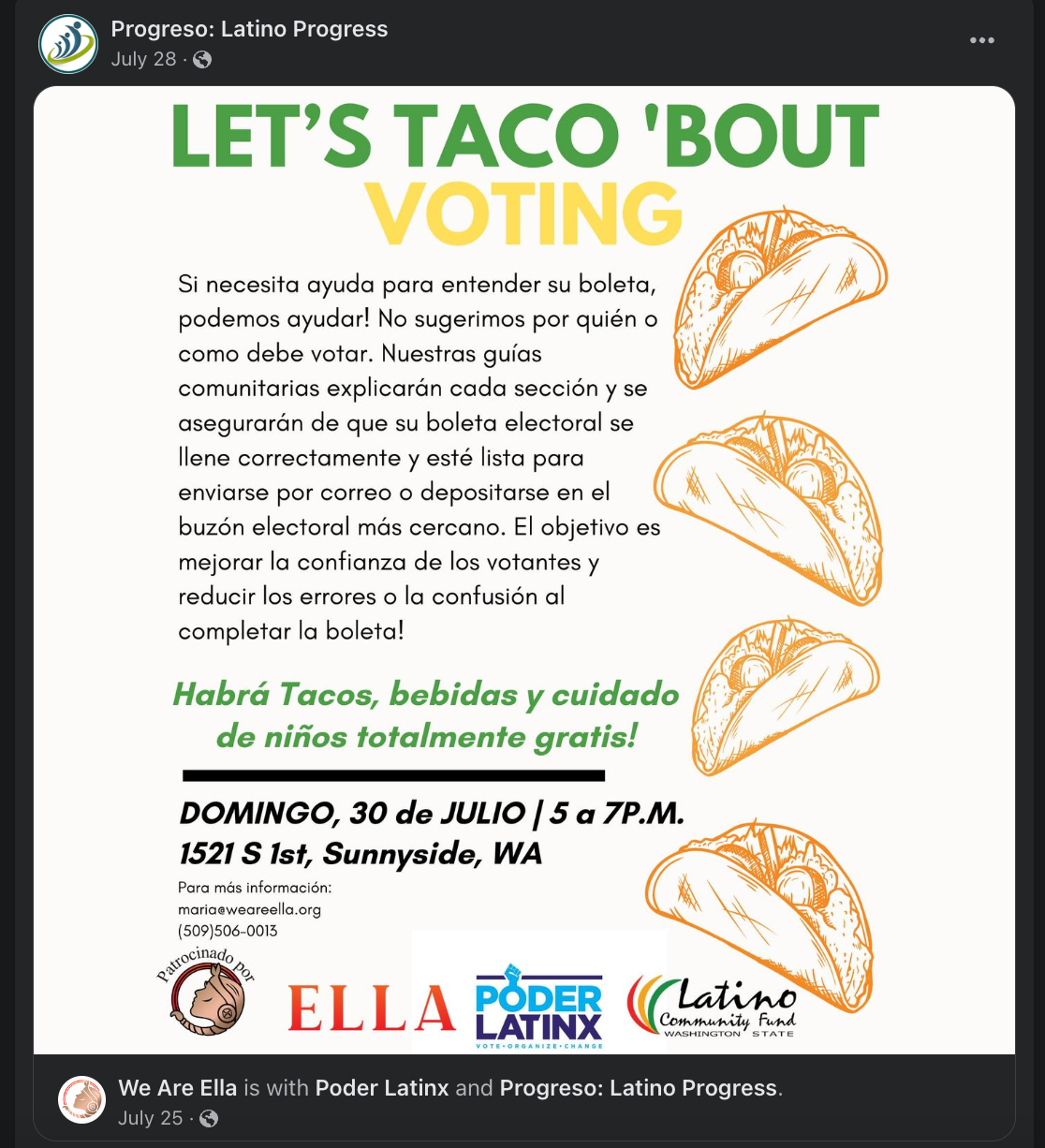
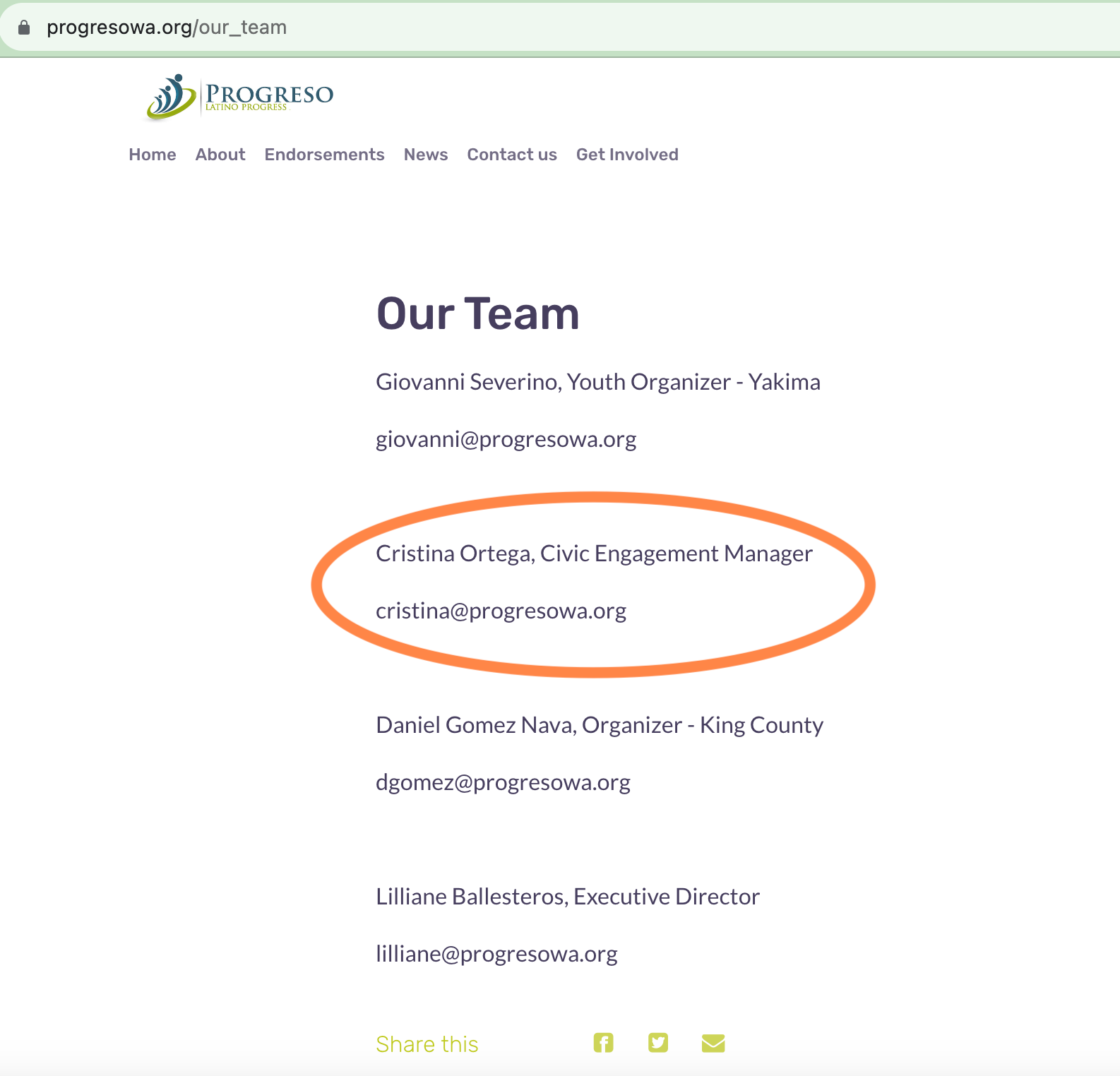


Screenshot of a voter event with Progresso, Poder Latinx, Ella, and the Latino Community Fund (Facebook). Additional clips showing Cristina Ortega's involvement in Progreso, the Latino Community Fund, and Yakima Pride (orange added, September 2023).
While many of these groups support each other ad infinitum on Facebook, some of them even share the same building. This is where OneAmerica comes into play.
- Audel Ramirez – mentioned in the Herald's article – is a community organizer for OneAmerica. He also works for the Lower Yakima Valley Latinx Coalition.
- Poder Latinx just happens to operate out of the same building as OneAmerica – the Centro Chinampa, located at 507 W. Chestnut Ave. Yakima WA 98902.
- Progreso has held voter canvassing events with OneAmerica at the Centro Chinampa.
- The Centro Chinampa is openly supportive of the LGBTQ agenda.
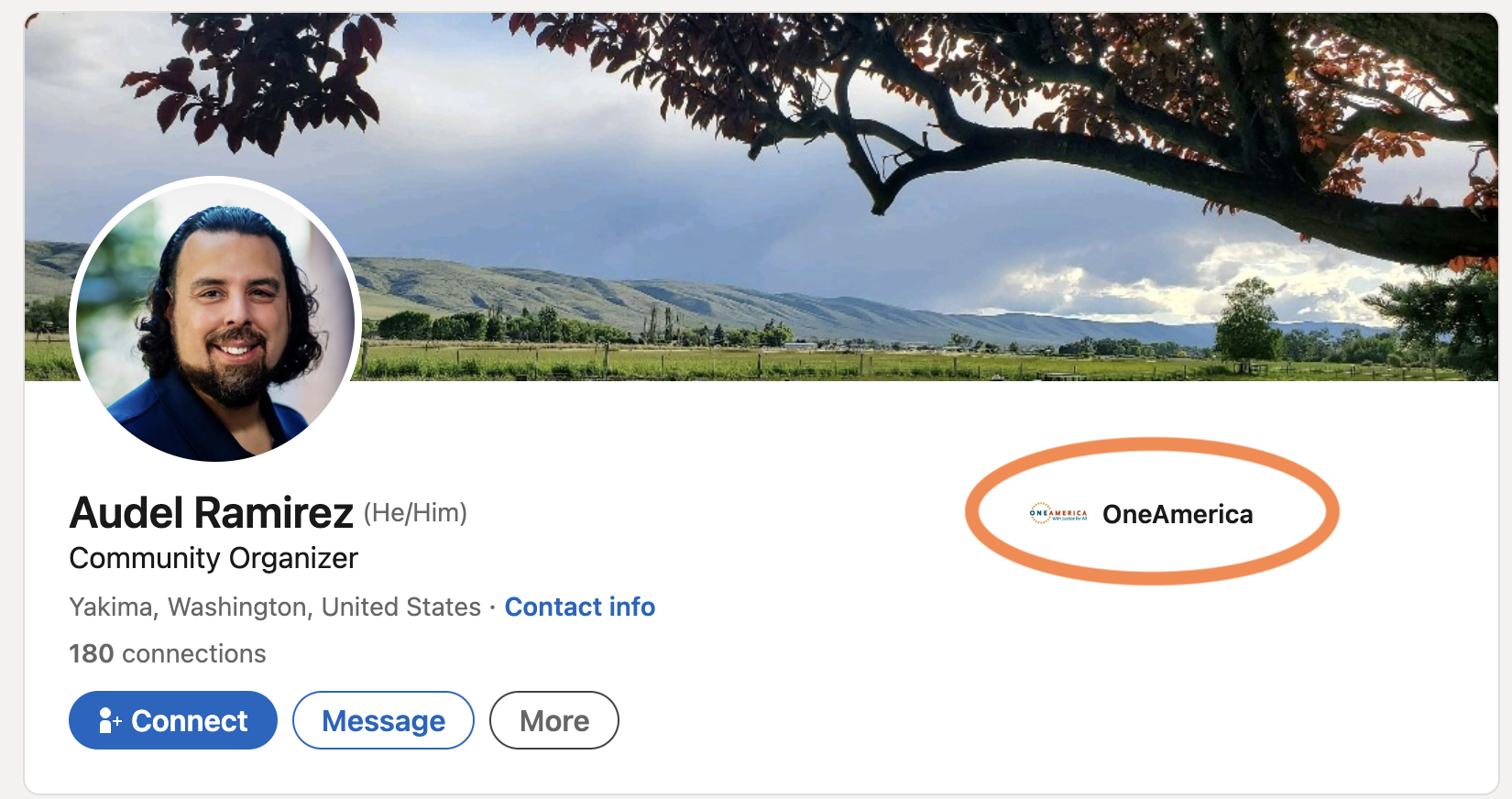
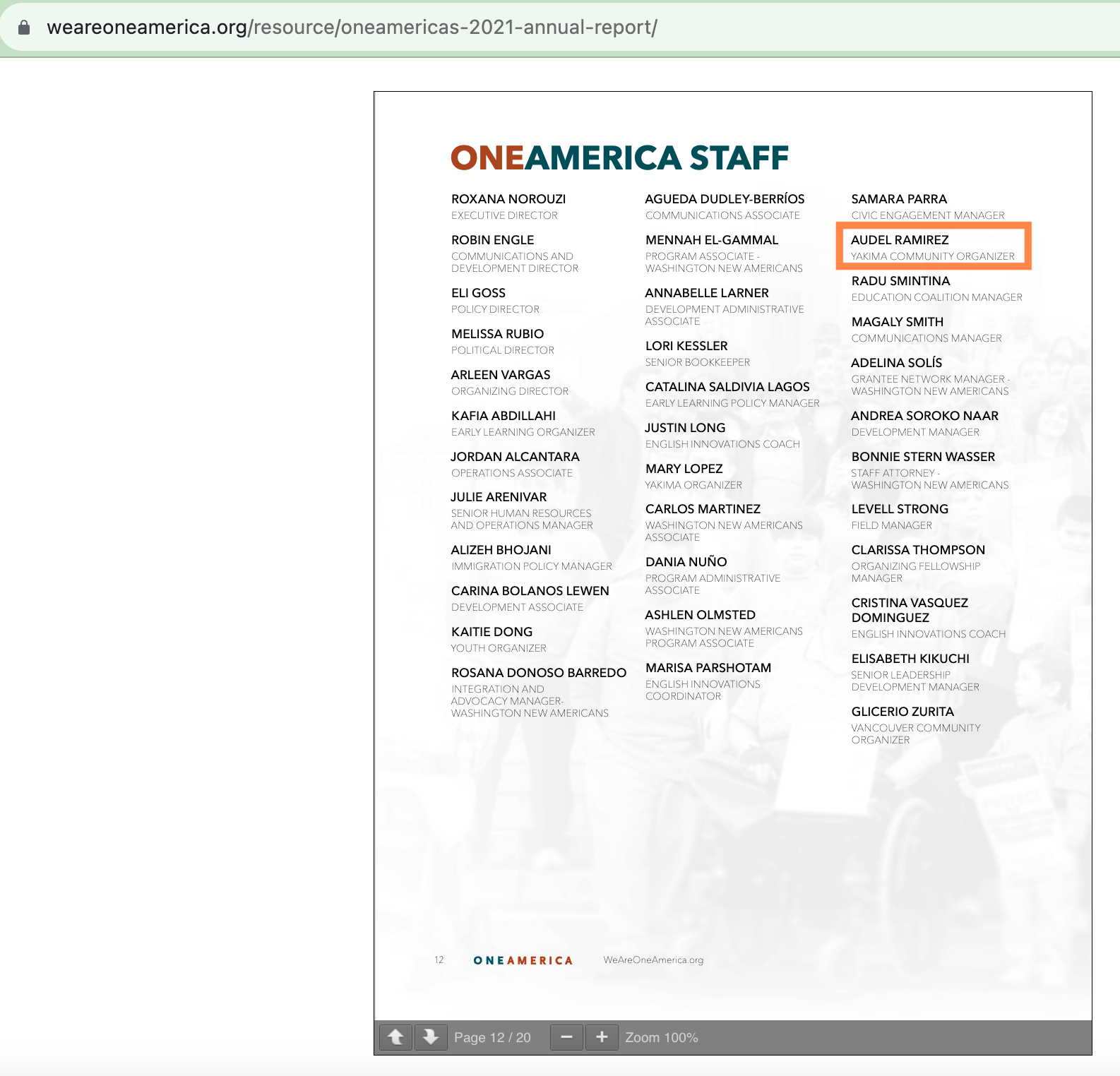
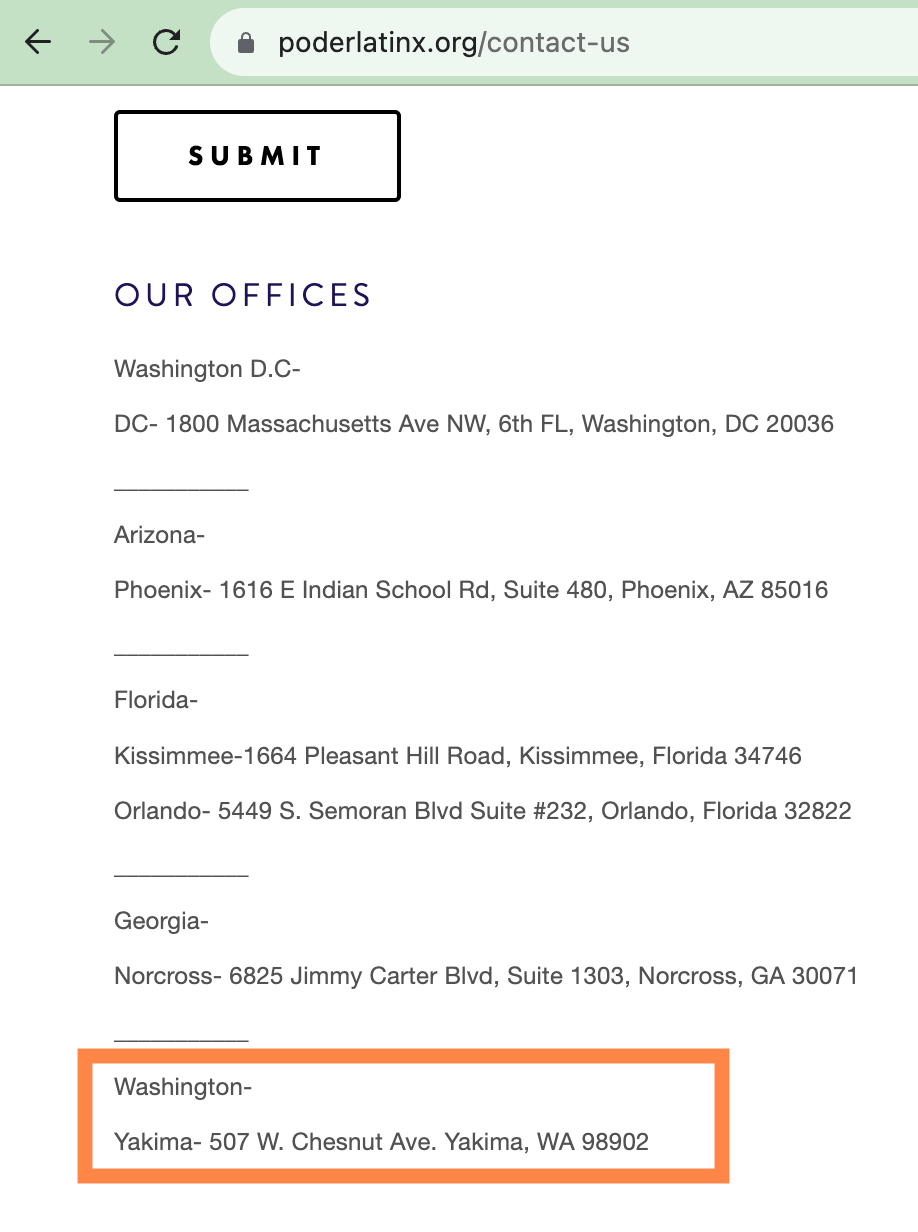
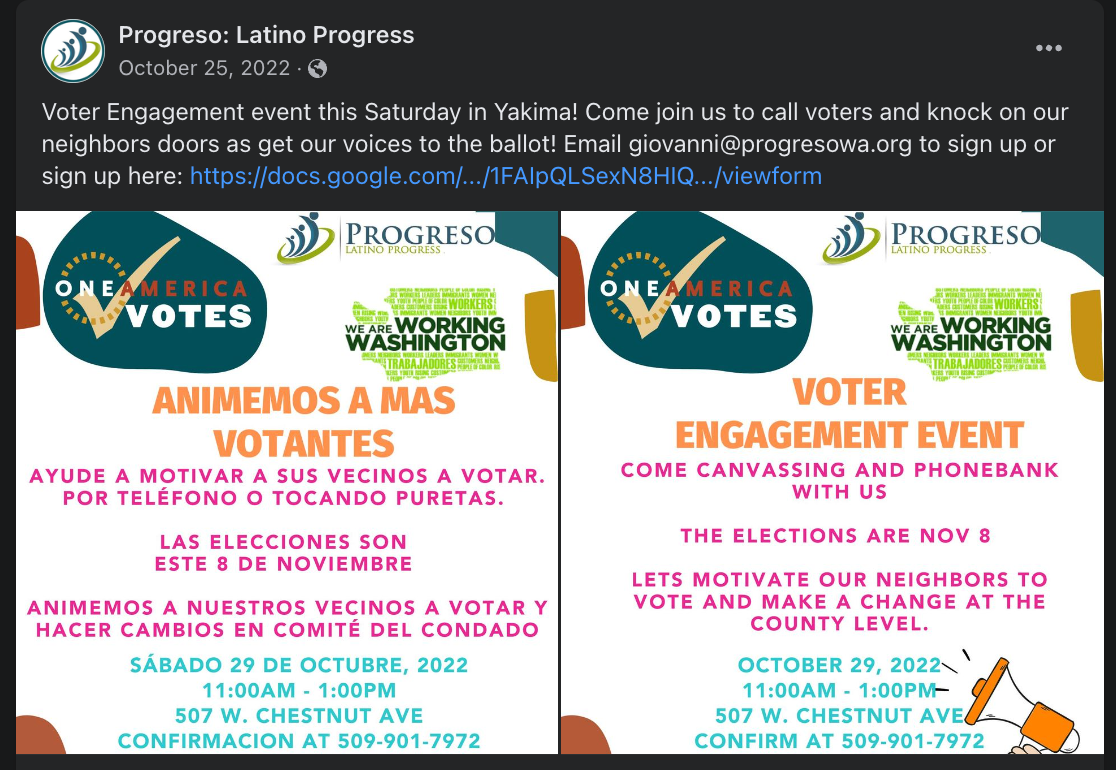
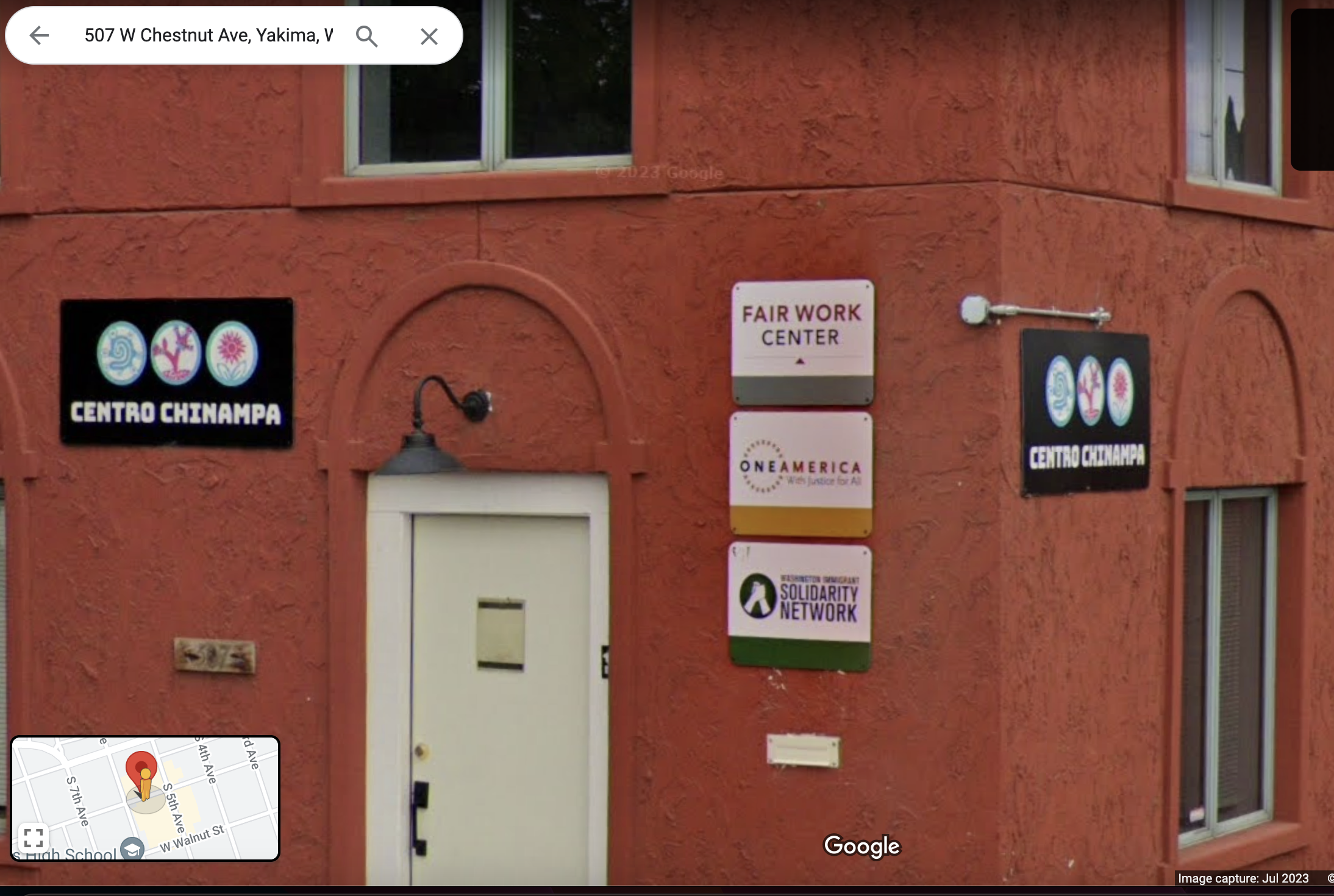
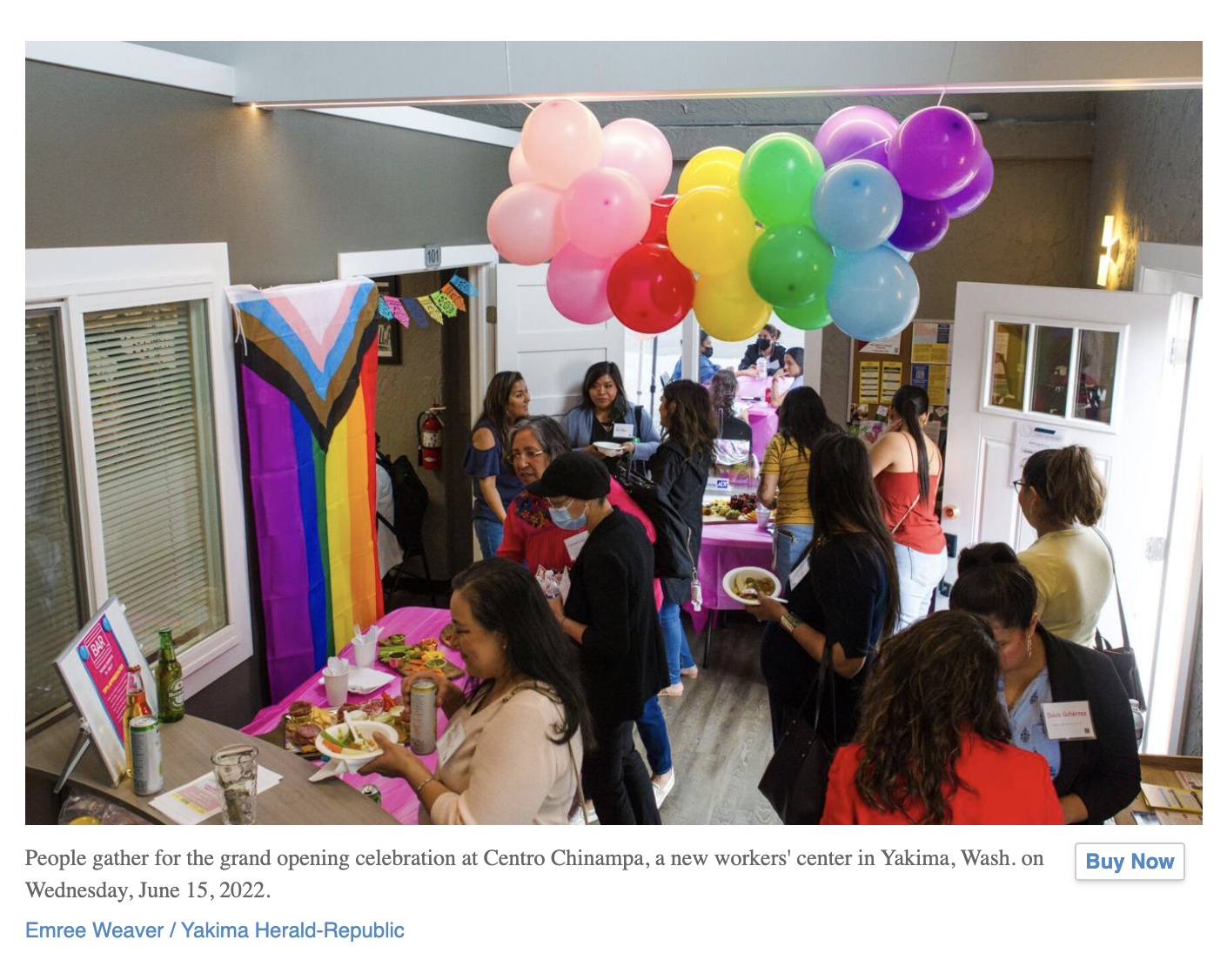
2 screenshots of Audel Ramirez's involvement with OneAmerica (LinkedIn & OneAmerica). The Poder Latinx office listing in WA matches the address of the Centro Chinampa. Progreso had a voter engagement event also showing a collaboration with OneAmerica at the Centro Chinampa address (Facebook). The outside of the Centro Chinampa building, showing a placard for OneAmerica (Google Maps). The Yakima Herald-Republic covered the Centro Chinampa's grand opening in 2022, which is overtly LGBTQ.
Point Being...
At One Crackima, sometimes we feel like madmen with red strings pointing in every direction, but the evidence supports us:
For the Yakima Herald-Republic's article, go here.
If the article has moved, OneCrackima has a hard copy here.


